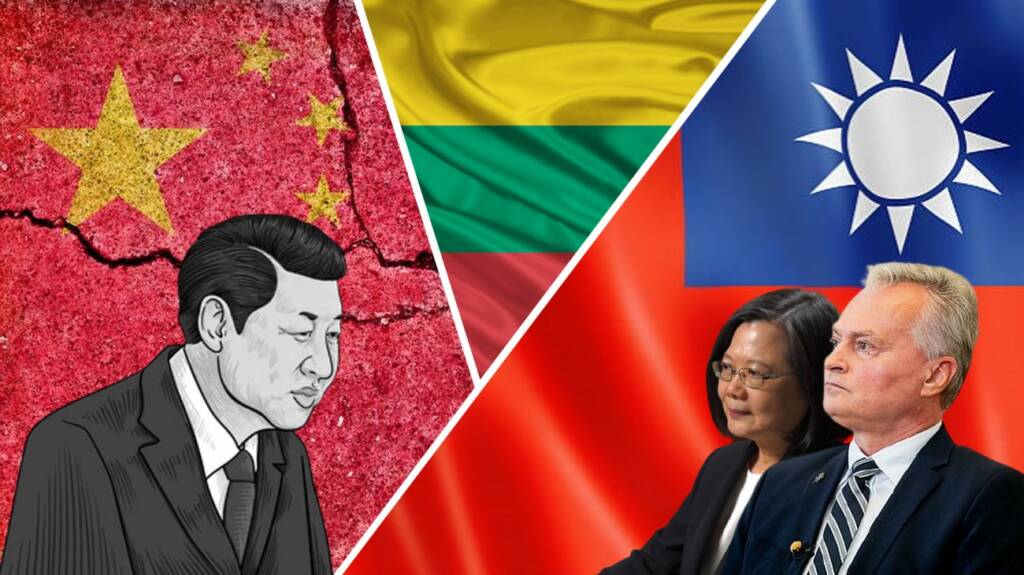During the leadership of German Chancellor Angela Merkel, Xi Jinping enjoyed a bilateral relationship with the European Union where Beijing was able to extract the maximum benefit. All the while being safe from any serious EU action on CCP’s Human Rights abuses. However, after her exit, the EU has entirely changed its stance with respect to Communist China. The case in point is overwhelming support for the small Baltic country, Lithuania which has taken the CCP to task and has also openly embraced Taiwan.
Now, as the Chinese Communist Party has been trying to punish Lithuania and make an example out of it, Taiwan has stepped up to support its Baltic ally. According to a Taiwanese envoy, Taiwan is planning to establish a semiconductor task force for Lithuania as the two democracies strengthen their connections in the face of China’s economic and political coercion.
Lithuania is heavily reliant on external commerce for industrial and agricultural goods. It is one of the European Union’s fastest-growing economies, and it is pushing for more regional semiconductor supply chain sovereignty and capacity expansion.
Lithuania could emerge as the biggest semi-conductor hub in Europe
On Friday (Dec. 24), Eric Huang, Taiwan’s first representative in Lithuania, told CNA that the Lithuanian government wants to play a key role in regional chip supply chains. Next year (2022), Taiwan will establish a semiconductor task force to provide expertise to the Baltic state, train much-needed engineers, and encourage semiconductor investment, he said.
“Taiwan is known throughout the world for its fully developed semiconductor ecosystem and talent pool, and today, Taiwan is willing to share its experience with Lithuania,” Huang said. When asked if the government would assist the Baltic state in establishing a chip manufacturing base, the envoy said the administration was considering numerous options. “We will begin to offer training programs for Lithuania in 2022 in its quest for semiconductor talent, and that will coincide with other industry cooperation.”
Also read: How Taiwan turned China’s economic Coercion into a sea of opportunities
Semiconductors are a strategic technological asset in today’s globalised world and the prowess of Taiwan in the realm of semiconductor chip manufacturing is a fact. From car batteries to laptops to smartphones to household appliances to gaming consoles and everything in between, semiconductors perform the fulcrum of the job in powering smart electronic devices.
The global semiconductor industry is valued at around 481 billion dollars as of 2018 and is dominated by companies from South Korea, Taiwan, and the United States. The fact that Taiwan is contemplating on incorporating Lithuania in the larger semiconductor partnership, itself makes it a significant development.
Geopolitical & geoeconomic importance of the move
By making Lithuania a hub for semiconductor chip production, Taiwan will create a supply chain behemoth that can cut short the time of already dying Chinese Belt & Road Initiative’s efforts in Eastern Europe. It will also make sure that in future any Chinese Communist Party-controlled companies from step up their own investments in such high-tech and strategically important sectors.
Like any other country, for China too, semiconductors are an indispensable product. And in recent times, China has also pushed for indigenous manufacturing of semiconductors, especially after the Trump administration crippled its electronics industry with a ban on the export of American-designed models to China. Huawei and SMIC were cut to size after the Trump administration blacklisted these companies and refused to sell semiconductors to them.
So, China faces a chip crisis of its own. It relies heavily on imports to keep its electronics and automobile industry afloat. Such has been the thirst for semiconductors that China has engaged in industrial espionage and talent-poaching to offset the semiconductor shortfall. However, an empowered and anti-CCP Lithuania will make sure that slowly yet steadily Beijing losses the European market in the strategically important sectors.
It will also present a model for the other European countries to change their approach from slavish adherence to ‘One-China Policy’ to take a more pragmatic approach and increase the influence & participation of Taiwan in Europe. This will not only provide significant recognition to Taiwan, but it will also solve the over-dependence of Taiwan and the EU on Chinese markets. Turning it into a win-win for everyone involved.
